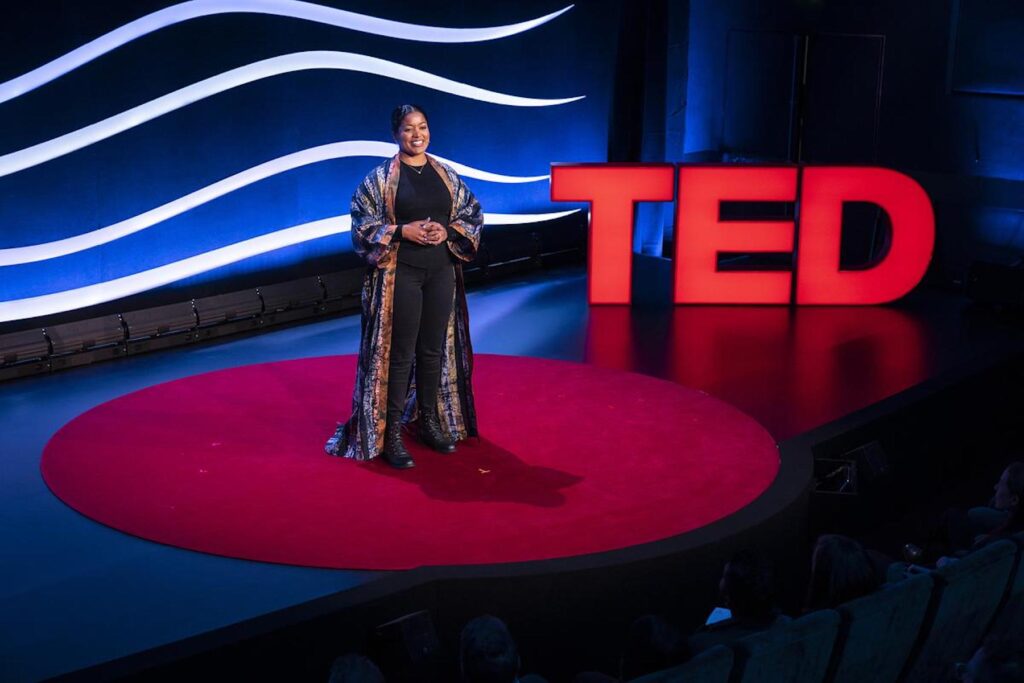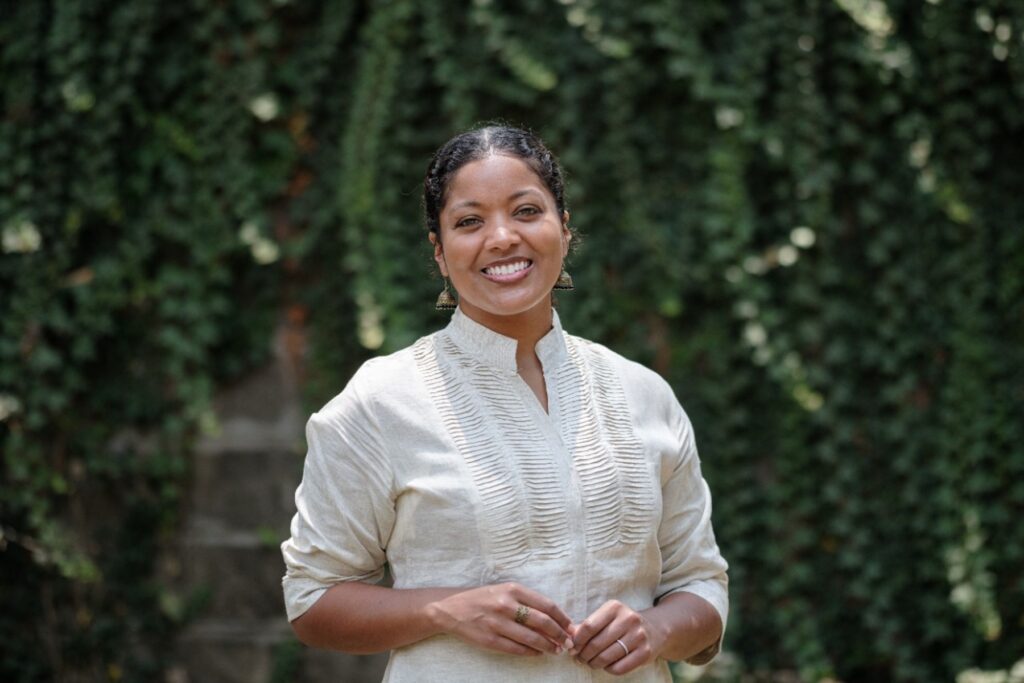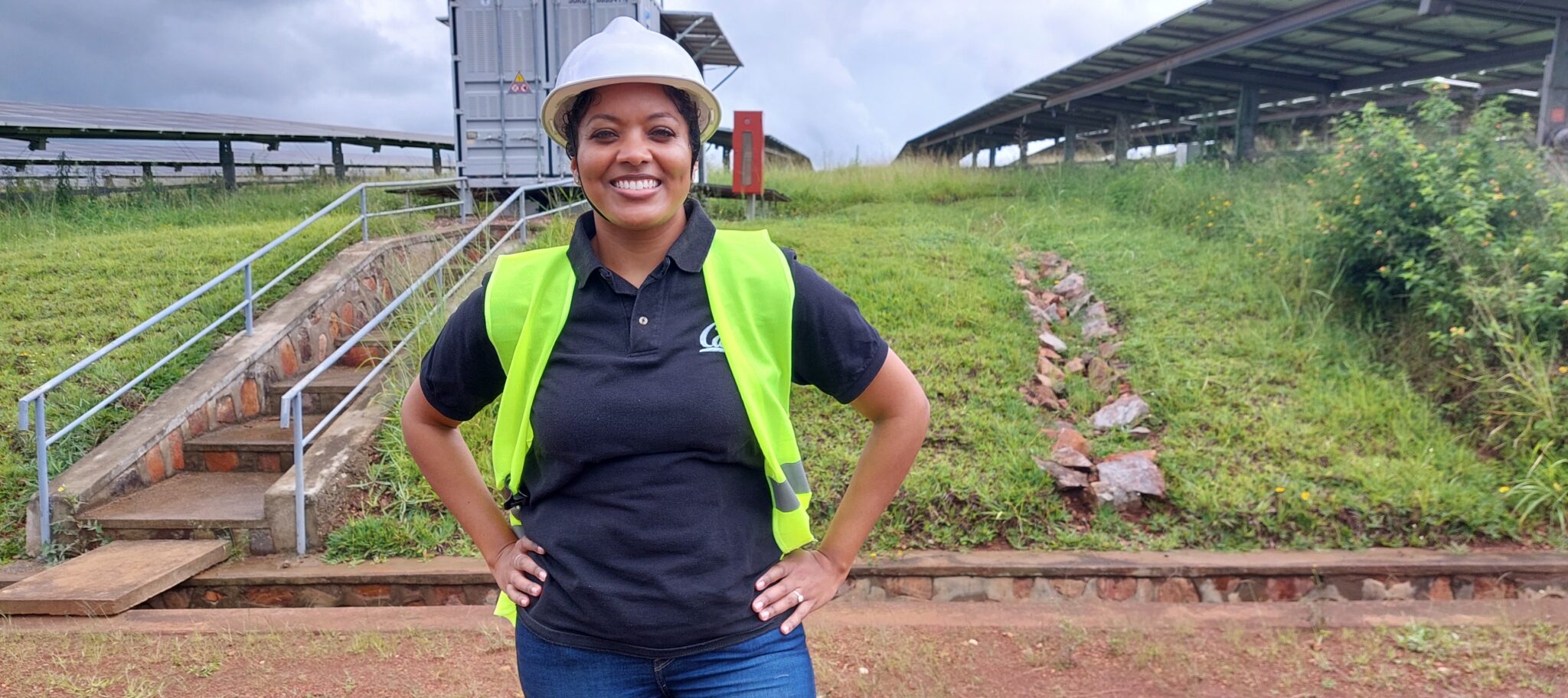When the power in her home flickers on and off during our interview, Rebekah Shirley, M.S.’10, Ph.D. ’15, isn’t fazed. Sadly, she’s used to the blackouts, as the energy system in Nairobi is unreliable. She is trying to change that. As Deputy Director of World Resources Institute Africa, Shirley is on a mission to accelerate the continent’s clean energy industry and spread awareness about the paltry financing the sector currently attracts.
She herself has already attracted significant attention. Originally from Trinidad, and educated both at McGill University in Montreal and UC Berkeley, her 2022 TED Talk , in which she called Africa the “clean energy hub of the future,” has racked up more than a million views.

She didn’t mince her words: “With 17 percent of the global population and almost 90 percent of those still without access to basic energy today, Africa accounts for a mere two percent of global clean energy finance… we can see a key missing ingredient: International cooperation to deliver the finance flows that Africa sorely needs because there’s so much potential waiting right at the cusp.”
Shirley contends that Africa has more than enough renewable energy potential to meet the world’s needs, not just Africa’s. It’s not a matter of whether there is sufficient momentum for African countries to “leapfrog” past unsustainable, polluting technologies to greener ones; the challenge is realizing that that’s not how funding clean energy initiatives work in reality. In the TED Talk she stressed that Africa needs more long-term sustainable funding as opposed to one-off grants. She said the continent is looking for “increased concessional financing, not reclassified financing, that doesn’t just target the easily profitable projects, but that is leveraged to drive global capital to least-electrified communities.”
When we spoke, Shirley had just participated in the first-ever Africa Climate Summit, hosted by Kenya in September 2023. She called it “a major moment for the future of climate action in Africa — not only because it is the first summit of its kind, but because it is anticipated to yield a roadmap for low-carbon development throughout the continent.”
The discussion has been edited for length and clarity.
You spent five years at Power for All, a non-profit in Nairobi that tracked energy systems in Sub-Saharan Africa, and have now worked at WRI Africa for the past three years. What do you find engaging about working to inspire energy solutions in Africa?
Shirley: It all began while doing my PhD at Berkeley. Once I got my master’s there in energy resources, I wanted more tools in the toolkit to tackle analysis work and understand data processing. My PhD work looked at how Borneo’s pristine forest regions attracted Chinese investment in 2012, with the goal of spreading hydropower stations and supposedly clean energy solutions across that area. A lot of forest areas were going to be destroyed, though, which led to a deep tension between civilians and government.
And I looked at developing energy systems models that helped me to analyze the options that existed for the grid in this particular spot in the world. Our studies resulted in the state choosing more sustainable options with a lower ecological footprint. That was a ground-breaking reversal!
I realized then that analytics in the service of civil society was what I wanted to do. That would become my passion.
You’ve said in your TED Talk, and in media reports, that to confront the lack of financing, Africa’s clean energy sector needs partnerships, and in particular, “ambitious, time-bound commitments to deliver long-term, low cost financing at scale from countries, banks and development finance institutions.” Can you unpack that for us?
Shirley: Africa doesn’t need grants or concessional loans, but investable opportunities. The latest research I’m reading says in order to meet our universal energy goals where everyone on the continent can access energy fairly, it needs to be covered through investments. And that’s what is missing here.
How did your academic training prepare you for this work?
Shirley: I went to McGill in Canada because it has always been known to have the best environmental science programs, and I’m so glad I went there.

At Berkeley, many courses allowed me to explore energy systems not just from technological and economical angles but also from the angles of justice and equity, with some courses veering into philosophical takes on energy where I learned it’s not just about dollars per kilowatt hour.
The peer-to-peer exchange was really powerful for me and it gave me the opportunity to travel and think about energy systems from the perspective of other countries… At that early stage I felt like, ‘I have something to add here, and I want to contribute something of my own.’
What’s your assessment of how the first Africa Climate Summit went?
Shirley: The inaugural Africa Climate Summit was historic because it was the first time African heads of state convened themselves around the climate agenda. The Summit yielded a Nairobi Declaration, which lays out basic agreed-upon commitments, one of which is to host the summit biannually, which will surely go a long way toward increasing the visibility of this agenda as a political priority across the continent.
While the focus of this first summit was on the investment opportunity that Africa represents as a climate solutions hub for the world… we must remember that solutions for climate adaptation, addressing loss and damage, or delivering climate justice, will not be solved by markets alone. This is why the voices of our vibrant civil society—youth, women, indigenous peoples and local community groups—are so important to every dialogue. I am hopeful that important conversations will emerge as a result of this Summit.


















